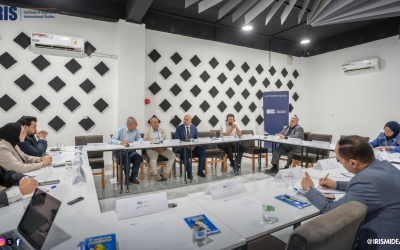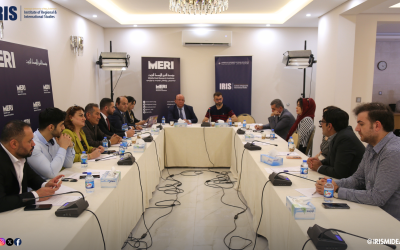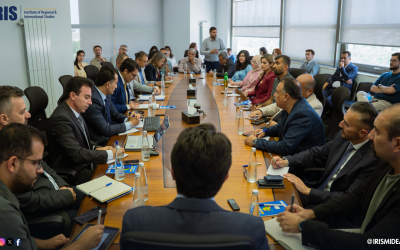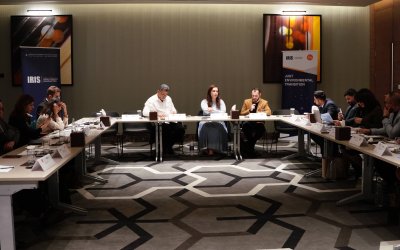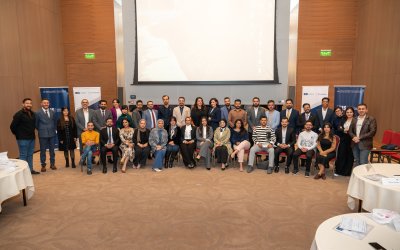On Wednesday, October 24, 2018 IRIS hosted Daniel Benaim, a former speechwriter in the White House and State Department and current senior fellow at the Center for American Progress, to discuss political speechwriting and U.S. foreign policy with AUIS students and faculty. He began his discussion with the importance of storytelling with succinct arguments and truthful and empathetic representations of political leaders and their social and political endeavors. In order to be a successful speechwriter, he noted, one must be able to benefit both the politician and society more broadly. He posited that the biggest problem in the U.S. currently was mistrust, and that speechwriters had a role to play in giving leaders and societal groups, particularly those who were misrepresented or underrepresented, a sense of humanity.
Touching upon the process of developing speeches, he emphasized the importance of using credibility, logic, and emotion to convey the heart of an argument, anticipate counterarguments, and appeal to opponents of an argument. He warned against clichés and slogans that may be catchy for a moment but do not convey a sense of freshness and sincerity.
Relating his discussion on speechwriting to the current state of US politics and foreign policy, he noted that presidents’ foreign policy decisions are ultimately decided on the basis of consultations with various institutions and advisors who must frame their arguments with consideration for the president’s mindset and potential responses. The president and his advisors must respond to the demands of a US population that no longer expresses broad support US engagement in Iraq and the Middle East. Benaim ultimately wrapped up his discussion with the assertion that despite recent developments in US politics, the US population had not replaced its idealism with cynicism, and that people still ultimately craved freedom from manipulation and informational warfare.

